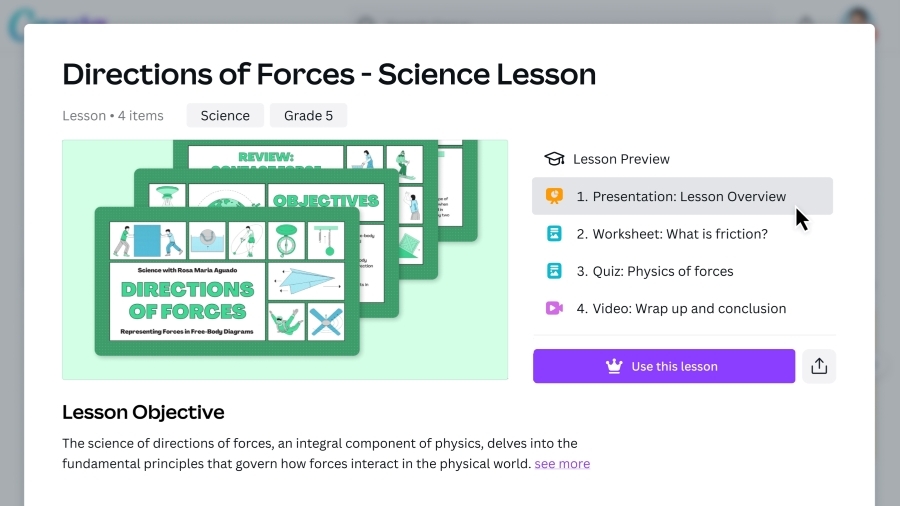For Ethical AI, Listen to Teachers
Topics

Educators often take advantage of educational technologies as they make the shifts in instruction, teacher roles, and learning experiences that next gen learning requires. Technology should not lead the design of learning, but when educators use it to personalize and enrich learning, it has the potential to accelerate mastery of critical content and skills by all students.
Whether we’re ready or not, AI is in classrooms. To maximize its benefits, we should lean on educators.
Over the past year, AI has been advancing with remarkable speed. It’s hard to have a conversation about education and schools that doesn’t mention AI—and ChatGPT launched less than a year ago.
The downside of this rapid advancement is that, in the world of schools and ed tech, it feels a bit like the wild west. AI has enormous potential for classrooms and schools, but at the same time, carries with it very real ethical and safety concerns. And right now, there are no clear regulations in place.
But here’s the thing: AI is here, and it’s not going anywhere. This puts school districts, educators, and ed tech companies in a tricky spot.
At Canva, we’re deeply engaging with these challenges—and yet we are so excited about bringing AI to classrooms. What we hear from teachers is both curiosity and questions. Are the algorithms biased, or will they generate inappropriate information? Will students just use AI to cheat?
Without the buy-in, care, and wisdom of teachers, we’ll never realize AI’s potential.
These perhaps paradoxical perspectives of teachers—excitement and hesitation—guide how Canva is approaching ethical use of AI. It’s why today we’re launching a new suite of K-12 products—including student-safe AI, interactive lessons, and curriculum-supporting content—to make teachers’ lives easier and help them to harness the power of AI. Without the buy-in, care, and wisdom of teachers, we’ll never realize AI’s potential. It’s on us to show teachers the benefits of AI, address their ethical and safety concerns, and ensure that they have the support they need to use it effectively. As regulators get to work on these problems, and more ed tech companies introduce AI tools, we call on them to also commit to putting our educators first.
Staying Grounded in AI’s Potential
We shouldn’t lose sight of the reason why we’re spending so much time thinking about AI safety and ethics: the potential benefits of the technology are vast.
But it’s bigger than that—AI presents an opportunity to help kids and teachers prioritize the skills that transcend technology: creativity, collaboration, critical thinking, and communication. Often, those skills get short shrift due to misplaced priorities. For instance, what if people of my generation had focused on those skills instead of, say, learning cursive? If implemented well, AI can have a similar effect of making menial skills obsolete—giving students and educators alike more time to focus on what really matters.
As we consider how to regulate AI, it’s important to keep that vision in mind. We should be tightly tailoring regulations in a way that ensures ethical use while allowing the technology—and its users—to shine.
AI presents an opportunity to help kids and teachers prioritize the skills that transcend technology: creativity, collaboration, critical thinking, and communication.
Acknowledging and Addressing Dangers
I certainly understand why some educators and school district leaders are hesitant to move forward with AI. Change is always hard, and AI can feel especially risky.
So what can we do? At Canva, we’re grounding our approach in directly addressing teachers’ most pressing concerns about ethics and safety. More specifically, we’re focusing on:
- Academic dishonesty. Many districts and educators fear that AI will be used by students to cheat on assignments. As much as possible, we need to ensure that AI is a tool to supercharge learning, not circumvent it. That’s one reason why we’re so excited about our new Lesson Suite, which offers a range of new tools to help teachers deliver engaging, interactive lessons that are designed to facilitate authentic student learning.
- Access to harmful content. One of the inherent challenges of AI is that it can generate content that we may not want students or teachers to see. We designed and implemented a variety of safety measures to ensure the technology was as useful as possible while ensuring ethical and safe use. This includes reviewing input, reviewing output, and putting in structures to reduce bias.
We will continue to hone our products to make them even safer. And if schools or teachers are uncomfortable, we will continue to make it easy to turn off Canva’s AI features.

An example of a science lesson in Canva.
Showing Teachers How
As the saying goes, an ounce of prevention is worth a pound of cure—and that certainly applies to AI. One of the most effective ways to promote ethical use of AI is to make sure that teachers know how to use it properly. For our part, we’ve created a number of how-to guides, showcasing how educators can use AI tools, as well as cheat sheets to support the design creation process.
We’ve also added AI trainings for teachers to our onboarding process for districts. We're committed to making the integration of AI into teaching seamless, empowering teachers to embrace the benefits of this transformative technology in ways that are most helpful and beneficial to them and their teaching style.
Looking Ahead
The potential of AI is thrilling. We are very close to a future where creativity is democratized; where students have greater opportunity to create and explore; where students with different learning needs can be supported more than ever before.
But we have to get implementation right—and that means taking ethical concerns seriously. The best way to do that is to center the needs, experiences, and concerns of our educators. I hope that policymakers, education leaders, and other ed tech companies keep that in mind as we enter a future enabled by AI’s boundless potential.
All images courtesy of Canva.




